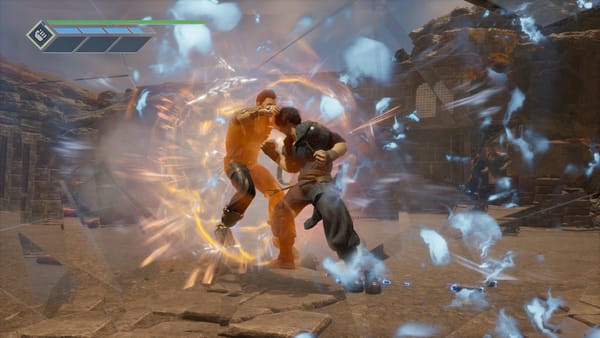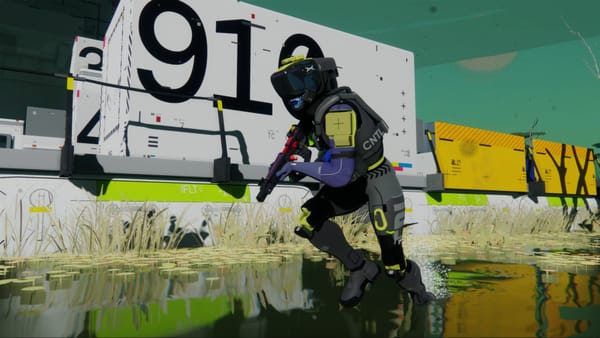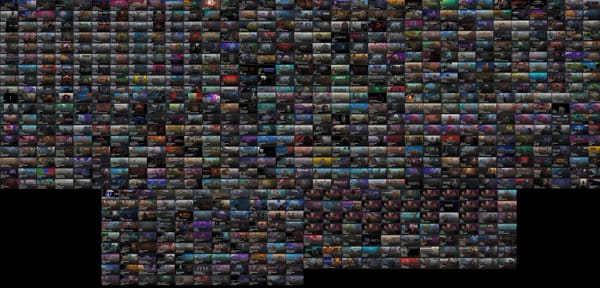#115: Our legacy
New App Store clean-up policies have worrying implications for the future of mobile games.
[Thanks for reading Hit Points! If this is your first time, then a hearty welcome to you. If you enjoy today’s edition, note that you can sign up for free to get this twice-weekly look at the latest goings on in the game industry sent straight to your inbox. It also gets you access to the full Hit Points archive. Thanks, and enjoy!]
Over the weekend, Robert Kabwe of one-man indie developer Protopop Games shared an email he’d received from Apple concerning one of his games. Motivoto, the email warned, hadn’t been updated in some time, and as part of an App Store clean-up it is going to be removed from sale forever unless he updates it within 30 days. This is no isolated case: several other developers have reported receiving the same email, and Google is doing similar with its own mobile app store, Google Play.
In fairness, I can sort of understand Apple’s motivation here. There are over three million apps on the App Store, of which almost a million are games. Even the healthiest trees need pruning from time to time (I shall resist the temptation to expand this into a lengthy ‘walled garden’ analogy because I am tired). Apple has to think about security, and discovery, and compatibility with its ever-growing family of devices, and so I suppose initiatives like this are inevitable at some point. But making regularity of app updates the deciding factor feels like a bit of a blunt instrument, and has worrying implications for the future of mobile games.
As Kabwe points out, updating a game of a certain age is far from a simple process. In Motivoto’s case, it would first mean updating the macOS development environment XCode. That, in turn, requires an update to macOS, which would then mean upgrading to a newer version of Unity, the engine in which Motivoto was built. Changing a single component of a development pipeline can introduce any number of problems. Changing all of them at once is, I am quite sure, a recipe for disaster.
So, what is Kabwe to do? And what of the countless other small studios or hobbyist developers who are either facing, or are likely to face, the same problem? I imagine the back-of-a-napkin economics suggest it’s better to walk away: that the amount of work required, particularly in so short a time, is unlikely to make enough of a difference to sales for it to be worth the bother (particularly if, like Kabwe, you have a day job). You’re probably not going to fix it. I therefore expect that, when you sit down to work on your next game, you will be far less inclined to develop for iOS. You have learned the hard way that, contrary to appearances, games on Apple devices have a pretty short shelf life.
This is, naturally, in part a question of preservation. It is hard enough to maintain a playable record of games on old systems; now we have to worry about platform holders killing off things that were made for hardware that’s still on the market at 30 days’ notice. But it is about the future as well. By using this yardstick, Apple is tacitly if not explicitly favouring games that are regularly updated — and we all know where that road leads. Ah, you’ve got a long-term-monetisable, live-service-y thing that will bring in regular, reliable revenue from in-app advertising and microtransactions? The search algorithm shall smile benignly upon you for many years to come. You made a lovely little self-contained game about exploring nature? Cool. You’ve got three years until we kill it off. Best of luck.
If this feels a bit familiar then yes, well done. I’ve made this sort of point before, back when Google redrafted Stadia’s revenue-share policies around player engagement, nudging creators towards making a certain type of game. I am incredibly queasy at the thought of platform-level policy decisions impacting on, or even dictating, the evolution of game design. The platforms themselves risk becoming systems to be gamed; innovation is stifled as attention turns instead to a sort of game-design SEO. I do not think Apple is doing this on purpose. But I do worry that it hasn’t properly thought the whole thing through. Heck of a thing to say about a trillion-dollar company, that, but here we all are.
MORE!
- Immune to all the above is one Zach Gage, whose immaculate puzzle games should be bought on sight the moment they are released. His latest, Knotwords, lands later this week.
- In seemingly more positive news about videogame preservation, Sony appears to have set up a team devoted to it. Fingers crossed this is about more than getting all the old Killzones on the new-look PS Plus.
- Ubisoft could be the next big-name acquisition, reports claim, with private equity firms already said to be circling the beleaguered publisher. While I can see the appeal in this, and the thinking behind it, it’s going to take an awful lot of work to knock Ubisoft into shape. In many ways it’s a bigger job than fixing Activision.
- That’s not to say it won’t happen, of course. M&A activity in the game industry totalled $98.7bn in the first three months of 2022. And if there’s one thing we’ve learned this week it’s that… well, you know. Let’s just say I wouldn’t be surprised if some eejit with a money/sense imbalance bought Ubi for the flex.
- Sony, like Microsoft, is reportedly at work on an in-game advertising platform designed at luring more free-to-play titles to PlayStation. Hit Points looked at all this last week.
- PS5 is finally getting Variable Refresh Rate support, with a raft of titles set to be updated in the coming weeks. One more thing for LG OLED users to feel smug about, isn’t it. Apologies in advance.
That’ll do! Apologies for my absence on Friday; it was the eldest’s last day of school holidays and I felt I owed him a proper hangout. Apologies for the interruption of service in an already supply-constrained month. Lots going on at the moment, both personal and professional, and it’s been a battle to keep on top of it all. Have a grand few days, and barring any catastrophes I’ll see you on Friday.





